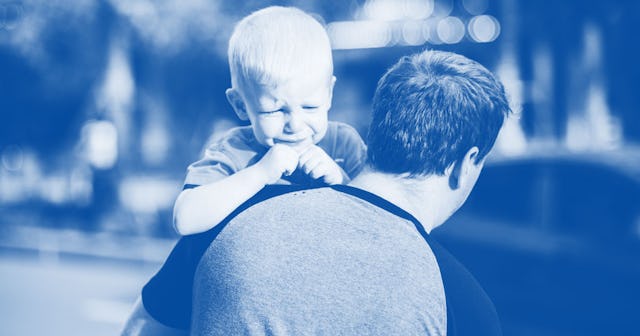More Than Half Of Fathers Receive Parenting Criticism

Summer of 2013, my wife took an internship, and I took the summer off to be a stay-at-home dad. I’d just finished graduate school, and my new job at the university was a 9-month contract, leaving me with the summers off. I learned a lot about parenting that summer, honestly. I learned a lot about my children too. At the time, we had two under the age of 6 (we have three now) and I learned that being the full-time caregiver is actually a million jobs mixed into one: chauffeur, time manager, cook, maid, and hostage negotiator.
But I also learned that being a father, alone with children during the day, opens you up for a lot of criticism.
Tookapic/Pexel
I think that was probably the most unexpected part of it all. When I took my kids to the park, I received suspicious looks and snide comments, all for being a grown man at the park at 2 p.m. on a workday with his kids. Once I ran into friends at the grocery store, and they asked me if I’d lost my job. And when I explained to them that Mel and I had switched roles for the summer so that she could pursue an internship, their response was something along the lines of, “That’s very sweet of you to take on that burden for your wife.”
While the comments I got in those days were (mostly) genuine and kind and with the best of intentions, what they were really saying was, “You are doing your wife’s job.” As if caring for children is solely a mother’s job, and that my “job” as a father is to do little more than bring in a check. And yes, I also got sly smiles from strangers at the pool, followed by the comment, “Babysitting the kids, eh?” I always smiled back, and waved. But I wasn’t babysitting. I was parenting. I was raising my children. I was having a hand in their development and upbringing. I was being a father.
With all that being said, I cannot say I was terribly surprised by a recent survey published by the University of Michigan’s C.S. Mott Children’s Hospital that found more than half of fathers believe they are judged harshly as parents. Overall, 52% reported receiving negative feedback about their parenting style, while 90% felt that they were actually doing a good job.
Now where is all this shaming coming from? According to the respondents, it’s grandparents and spouses.
Now let’s pause here to acknowledge that “doing a good job” is very subjective. A “bad job” at parenting can often be one partner simply doing something differently. I do laundry differently than Mel, and she feels that I do it wrong. And to be frank, I feel the exact same way about how she does the laundry. However, regardless of whoever does the laundry, the result is the same: the family has clean clothes.
What I do think this survey points out, however, is that fathers are the subjects of parental shaming, same as moms. Now I’m not going to try and say this is an apples to apples sort of thing, because I am confident that mom shaming is different from dad shaming, but as a father I can say I found connection with much of what the men survived expressed.
For example, according to the Michigan survey, although “90% of fathers are confident as parents, many felt that adults in positions of power didn’t respect their parental role — 11% have felt that a teacher assumed they were not knowledgeable about their child’s needs or behavior, and 12% have felt that a doctor or nurse assumed they were not knowledgeable about their child’s health. Nearly one-quarter of fathers have felt excluded from communication about their child’s activities.”
I cannot remember the last time I missed a parent-teacher conference, and I also cannot recall a time when one of my children’s teachers actually looked at me instead of my wife at a parent-teacher conference. I might as well be a fly on the wall at those things. I feel the same way at doctor’s appointments. In fact, I can think of numerous times when I’ve asked a question, and the doctor gave my wife the answer. It’s all pretty demeaning, and makes me feel like a secondary parent.
Things get even more complicated when I look at the flip side of the coin. Father’s receive praise for the stupidest crap. I wrote an article for Scary Mommy not long ago where I described a conversation with a friend of mine who took his children flying alone and more or less received a standing ovation for his good deeds while exiting the plane. I must have seen a million moms with crisscrossed bags and a double stroller wondering the airport, yet none of them received as much as a high five.
Josh Willink/Pexels
What this all boils down to is that dad shaming is a real thing, same as mom shaming, and NONE of it is necessary. Sarah Clark, faculty member at the University Of Michigan School Of Medicine, and lead researcher on the survey gave this advice to mothers and fathers, “Establish common ground with their co-parent early on to strengthen their bond and work as a team.”
If we are going to keep reaching for egalitarian relationships, where mothers and fathers pull equal weight in this whole parenting journey, we are going to need to stop being so critical of each other, drop the parenting clichés and assumptions, and treat each other as equals.
This article was originally published on